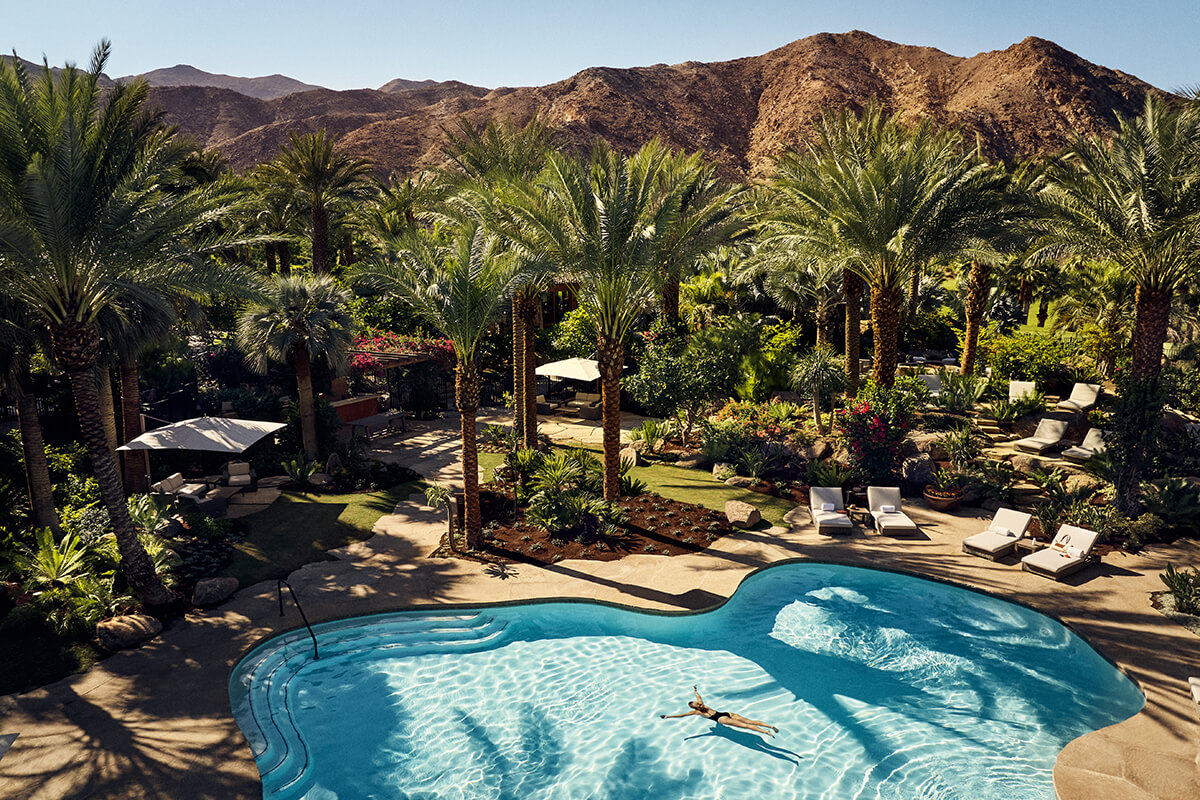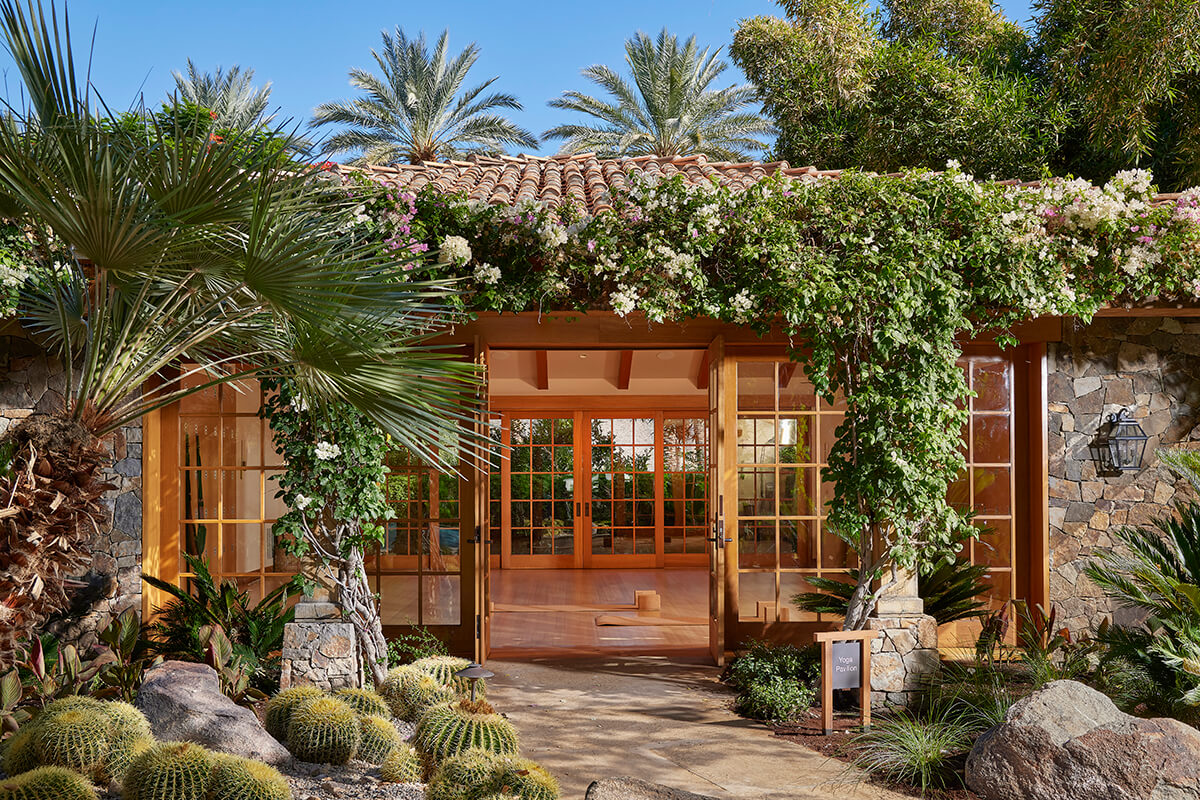PLAYING THE LONG GAME

A small package arrives in the mail, a WHOOP wearable fitness tracker. It’s not from Amazon, but Sensei Porcupine Creek (sensei.com), the new wellness resort in Rancho Mirage, California, near Palm Springs. You booked five nights there on a friend’s recommendation—neither of you is getting any younger—and he says he’s finally sleeping better. Because vacation mode will be different from the routine of work, happy hour, and late-night kitchen runs after Law & Order, it’s best to start collecting biodata with the tracker now, about a month before the trip.
When the phone rings, the caller identifies himself as your guide for the Porcupine Creek trip. He's following up on the resort's multiple-choice questionnaire you answered, including “What brings you joy?” and if you eat regular meals or snack a lot. The guide goes into a few follow-up questions and asks if you’re the type to plan an itinerary for the trip now or if you prefer to wait until you arrive in Palm Springs.
Kelly Georgiou, director of program operations at Porcupine Creek and sister spa Sensei Lanai in Hawaii, describes her approach in developing a program with such careful information gathering. “We are playing the long game,” she says. “This is all about longevity. Are you going to be up and walking when you are 80?” You hope this trip won’t be a bummer.
The ride in from the airport in Palm Springs is a quick 20 minutes, and the car stops in front of two Jurassic Park–sized gates. As they open, you can’t see where you’re headed, just a long drive winding through 230 acres, an oasis of palm trees and succulent gardens around a private, 19-hole golf course. You pass Robert Indiana’s One Through Zero (The Ten Numbers) sculptures before reaching the estate house, a former home of Oracle founder Larry Ellison, converted last year into a 22-room resort that Ellison owns with longtime collaborator and friend Dr. David Agus, the leading cancer researcher and CBS News medical correspondent.

There’s no formal check-in, rather a staff member comes up and introduces himself, showing you to your room, an expansive, open-plan space with neutral colors, filled with natural light. Once you’ve settled and had your first of many meals at Sensei by Nobu (no complaints there, this is no fat-camp fare), you are due at the first of three private meetings with your guide. The conversation during this time, labeled “My Intention” on your itinerary, feels more natural than you expect. You have a chance to make it clear you want to feel sharper at work and deal with a chronic pain in your left ankle.
Alongside Ellison and Agus’ investments and expertise, an arsenal of the latest diagnostics has been amassed to complete the picture of your health for the second meeting: Fitness with Biomarkers. These include tools to measure your VO2 Max and analyze your gait and vertical jump. The guide talks through your mindset going into the trip, nutrition realities and goals, and discusses fitness preferences. Then you can map out the next four days with a mix of wellness consultations, spa services, rounds of golf, and tennis matches.
When broaching the stickier points of your routine, i.e., your vices, Georgiou lets the information she’s gathered do the talking. “We have a discussion around the data, connecting that to lifestyle changes and answering questions like, ‘Does my phone impact my sleep quality?’” Georgiou hires who she calls “best-in-class” practitioners, people who love what they do and are driven by passion. As they get to know guests, they can tell who is ready to make a change and who is just curious. “If they are transitioning jobs or homes,” Georgiou says, “change is hard. We prioritize what is reasonable now.”
Georgiou says she’s successful when guests come back, not because their plan didn’t work but because they found success and want to continue to grow. Talking with your guide at the third and last meeting, My Plan, you discuss finding time to walk now that the ankle pain is addressed and making a practice of cooking. The steps to feeling better are broken down and digestible, and after living differently for six days, and seeing the shifts in your biomarkers and feeling better, you’re returning home with a phrase you’ve heard this week and now can’t get out of your head, “You can live a long, healthy life.” From $1,580/night for the five-night Optimal Wellbeing Program.